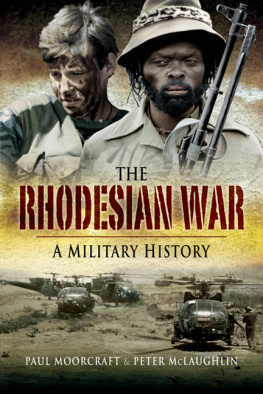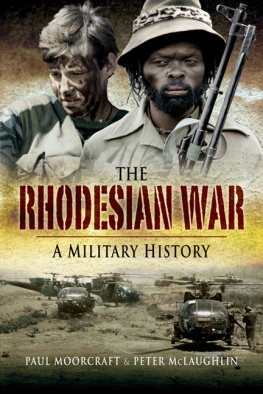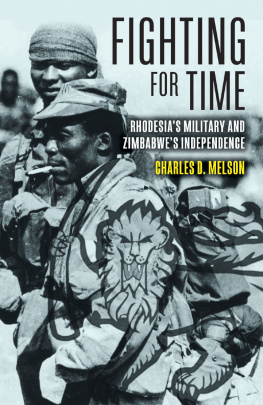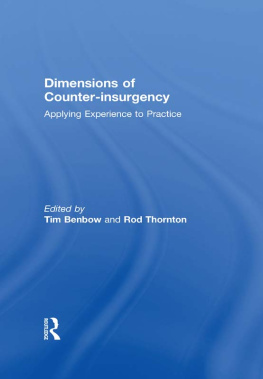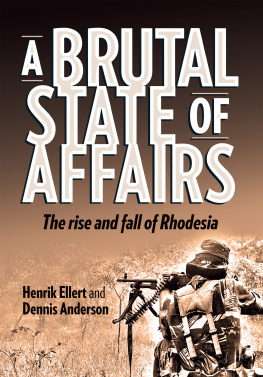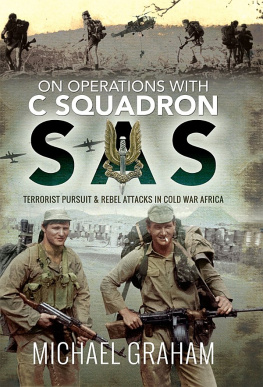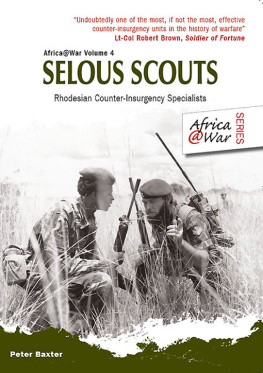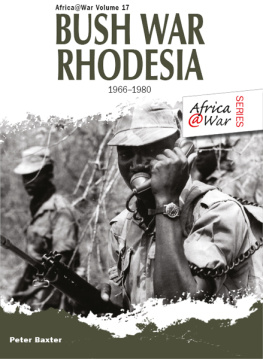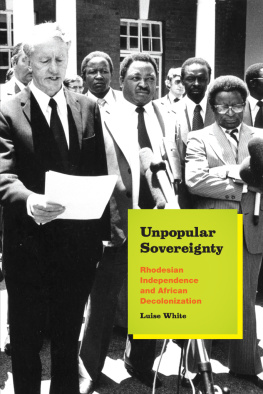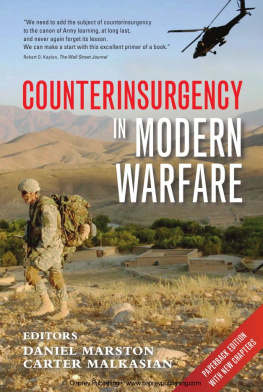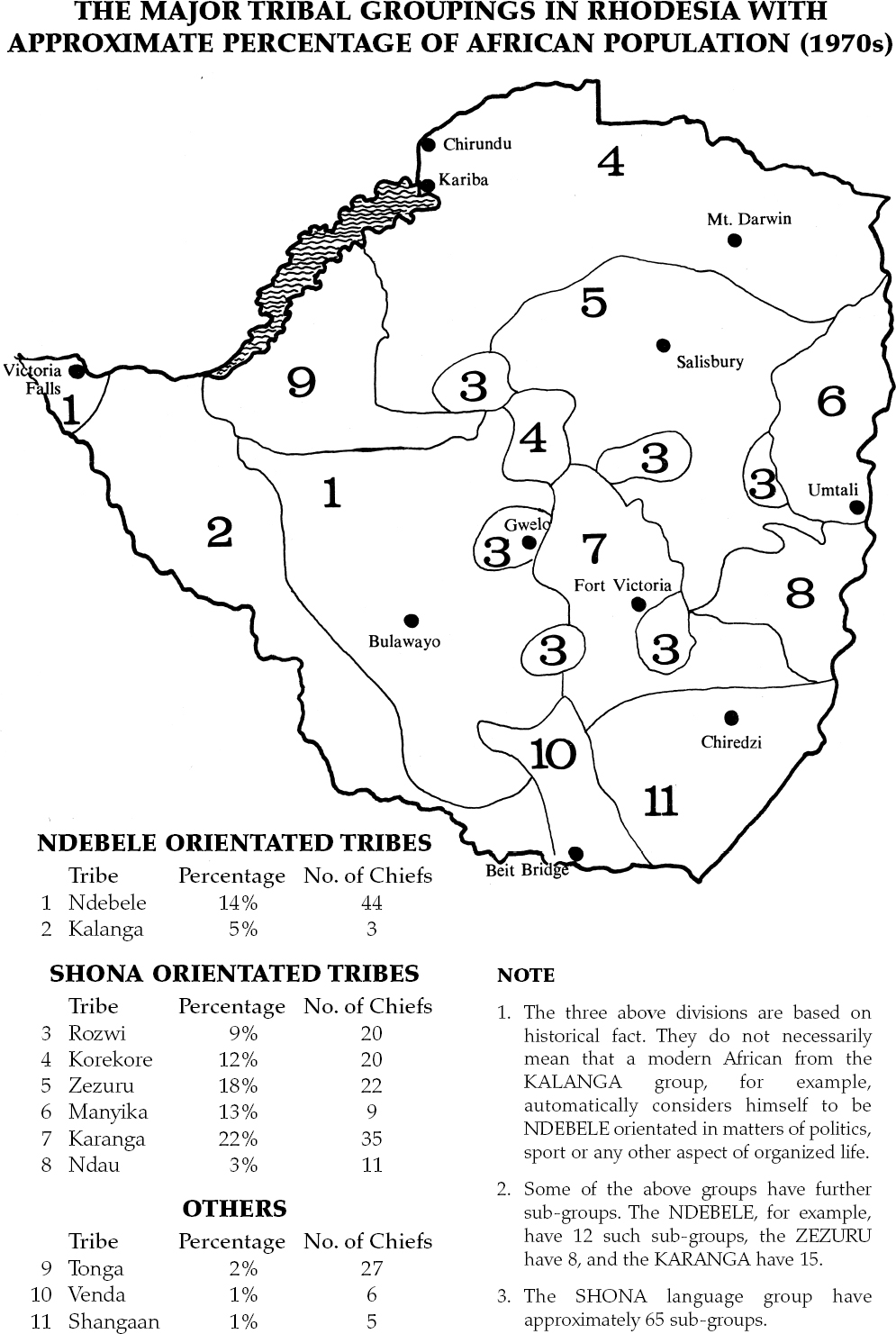Professor Paul Moorcraft lived in Rhodesia and Zimbabwe from 1976-81. He covered the war, inter alia , for Time magazine, and also taught politics and history at the University of Rhodesia/Zimbabwe. His doctorate was on the intelligence and military failures of the Rhodesian government. He also served in the A Reserve of the BSAP/ZRP for 18 months, after December 1979. In addition, he worked extensively as a journalist covering the conflicts throughout southern Africa from 1981-88. Later, he was the editor of a range of UK security and foreign policy magazines, including Defence Review and Defence International . He worked for most of the Western TV networks as a freelance producer/war correspondent, as well as lecturing full-time at ten major universities in journalism, politics and international relations. He was a Distinguished Radford Visiting Professor in Journalism at Baylor University, Texas. He has worked in 30 war zones in Africa, the Middle East, Asia and the Balkans, often with irregular forces, most recently in Afghanistan, Iraq, Palestine/Israel, Darfur and Nepal.
Paul Moorcraft is a former senior instructor at the Royal Military Academy, Sandhurst, and the UK Joint Services Command and Staff College. He also worked in Corporate Communications in the Ministry of Defence in Whitehall. In 2003 he was recalled temporarily to government service in Whitehall and Iraq.
He is the author of a wide range of books on military history, politics and crime, as well as being an award-winning novelist. Paul Moorcraft is a regular broadcaster and contributor to UK and US newspapers (with frequent columns in the Washington Times, Business Day [Johannesburg], the Guardian , etc.), as well as a pundit on BBC TV and radio, Sky, Al-Jazeera, CBC, etc. His most recent co-authored book is Axis of Evil: The War on Terror (2005); the updated US edition is The New Wars of the West (2006). His co-authored study on combat journalism, with Professor Phil Taylor, Shooting the Messenger: The Political Impact of War Reporting , was published in 2008.
Professor Moorcraft is currently the director of the Centre for Foreign Policy Analysis, London, as well as being a Visiting Professor at Cardiff Universitys School of Journalism, Media and Cultural Studies.
Dr Peter McLaughlin was born in Northern Ireland and lived in Southern Rhodesia, Rhodesia and Zimbabwe from 1956 to 1983. He is a history graduate of the University of Rhodesia. His doctorate was a study of the role of British Imperial defence policy in shaping the Rhodesian armed forces from the 1890s to the 1950s. During the Rhodesian war, he served in operational areas as a field reservist in the British South Africa Police. Peter McLaughlin taught modern political and economic history at the University of Rhodesia/Zimbabwe from 1977 to 1983. He set up the War Studies course at the university and was awarded an Association of Commonwealth Universities Post-doctoral Fellowship to the London School of Economics to study the British munitions industry in the First World War. He left the world of research and lecturing to carve out a successful career as a headmaster at major independent schools in England. From 1999 to 2005 he was Principal of The British International School in Cairo and kept the school functioning smoothly throughout the Islamist terrorist campaigns in Egypt, as well as during the turmoil in the Middle East of 9/11, the Afghanistan invasion and the Iraq crisis.
What the hell am I doing here? Travels with an occasional war correspondent (1995)
Shooting the Messenger: The Political Impact of War Reporting (with Phil Taylor) (2008)
SELECT BIBLIOGRAPHY
When the original version of this book was published in 1982, very little written material was available. The authors relied largely on their own experiences of the conflict and extensive interviews with the major participants. The following books are suggested as further reading on the subject.
Arbuckle, T,Rhodesian Bush War Strategies and Tactics: An Assessment, Journal of the Royal United Services Institute , 124: 4, 1979.
Astrow, Andr, Zimbabwe: A Revolution that Lost its Way ? (Zed, London, 1983).
Bailey, Martin, Oilgate (Coronet, London, 1979).
Beckett, Ian F W,The Rhodesian Army: Counter-insurgency, 1972-1979 in Ian F W Beckett and John Pimlott, eds. Armed Forces and Modern Counter-Insurgency (Croom Helm, Beckenham, Kent, 1985).
Bhebe, Ngwabi and Terence Ranger, eds., Soldiers in Zimbabwes Liberation War (Currey, London, 1995).
Binda, Alexandre, The Saints: The Rhodesian Light Infantry (30 South Publishers, Newlands, Johannesburg, 2007).
Blake, Robert, A History of Rhodesia (Methuen, London, 1977).
Brickhill, Jeremy,Zimbabwes Poisoned Legacy: Secret War in Southern Africa, Covert Action Quarterly 43 (Winter 199293).
Caute, David, Under the Skin: The Death of White Rhodesia (Allen Lane, London, 1983).
Cilliers, J K, Counter-Insurgency in Rhodesia (Croom Helm, Beckenham, Kent, 1985).
Cocks, Chris, Fireforce: One Mans War in the Rhodesian Light Infantry (Galago, Alberton, 1988).
Cole, Barbara, The Elite: The Story of the Rhodesian Special Air Service (Three Knights, Amanzimtoti, 1984).
Sabotage and Torture (Three Knights, Amanzimtoti, 1988).
Cowderoy, Dudley and Roy C Nesbit, War in the Air (Galago, Alberton, 1987).
Doro, Marion E, Rhodesia/Zimbabwe: a Bibliographic Guide to the Nationalist Period (Hall, Boston, 1984).
Ellert, Henrik, The Rhodesian Front War (Mambo Press, Gweru, 1993).
Flower, Ken, Serving Secretly: An Intelligence Chief on Record (John Murray, London, 1987).
Frederikse, Julie, None But Ourselves: Masses vs Media in the Making of Zimbabwe (Raven Press, Johannesburg, 1982).
Fuller, Alexandra, Dont Lets Go to the Dogs Tonight: An African Childhood (New York: Random House, 2001).
Gann, L and T Henriksen, The Struggle for Zimbabwe (Praeger, New York, 1981).
Godwin, Peter and Ian Hancock, Rhodesians Never Die: The Impact of War and Political Change on White Rhodesia (Oxford University Press, Oxford, 1993).
Hanlon, Joseph, Apartheids Second Front (Harmondsworth: Penguin, 1986).
Hills, Denis, The Last Days of White Rhodesia (Chatto and Windus, London, 1981).
Hudleston, Sarah, Face of Courage: Morgan Tsvangirai (Double Storey Books, Cape Town, 2005).
Kriger, Norma, Zimbabwes Guerrilla War: Peasant Voices (Cambridge University Press, Cambridge, 1992).
Lake, A, The Tar Baby Option: American Foreign Policy Towards Southern Rhodesia (Columbia University Press, New York, 1976).
Lan, David, Guns and Rain: Guerrillas and Spirit Mediums in Zimbabwe (Currey, London, 1985).
Linden, Ian, The Catholic Church and the Struggle for Zimbabwe (Longman, London, 1980).
Martin, David and Phyllis Johnson, The Struggle for Zimbabwe (Faber and Faber, London, 1981).
The Chitepo Assassination, (Zimbabwe Publishing House, Harare, 1985).

